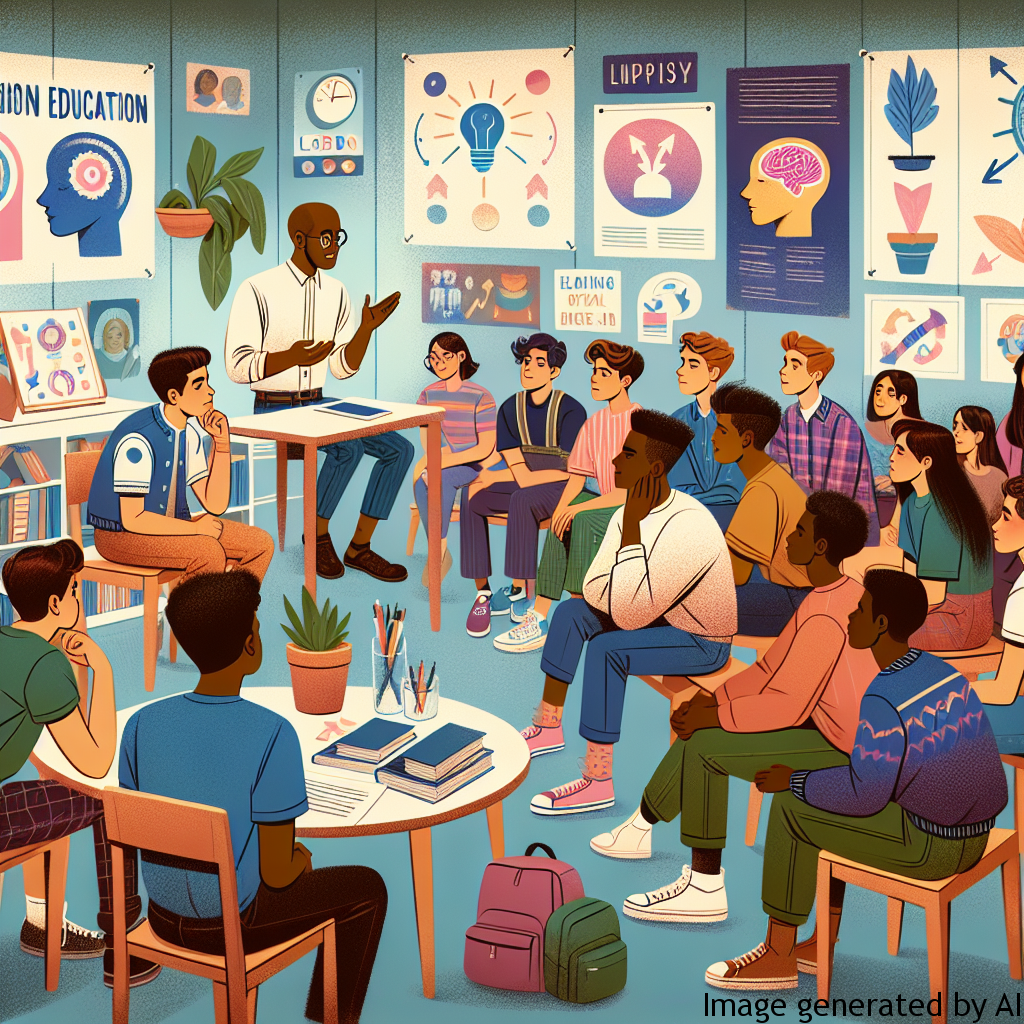This article focuses on the importance and relevance of sex education for LGBTQ+ teenagers. Quality, inclusive, and affirming sexual education is necessary to help these teens navigate through understanding their bodies, feelings, relationships, and overall health. By addressing gender expectations and their impact, providing examples, and offering helpful tips, this paper aims to contribute to a better understanding of their specific educational needs.
Introduction
Sex education is crucial for all young people as they embark on the journey toward adulthood. Accurate, inclusive, and comprehensive sex education can provide all individuals with the knowledge and skills needed to make informed decisions about their sexual health and well-being. Unfortunately, not all sex education programs recognize or prioritize the unique experiences and challenges faced by LGBTQ+ (lesbian, gay, bisexual, transgender, queer, and others) adolescents. Acknowledging and addressing these educational gaps is essential in ensuring the psychological and physical health of these individuals.
Description of Gender Expectations and their Impact on Men’s Psychological Health
Understanding Gender Expectations
Societal gender expectations often dictate how individuals should behave, think, and feel based on the sex they were assigned at birth. For men, these expectations often entail embodying traits of toughness, emotional stoicism, aggression, and independence. LGBTQ+ teens who identify as male may face additional pressures to conform to these norms while also grappling with their sexuality or gender identity.
Impact on Psychological Health
The pressure to conform to these gender expectations can have detrimental effects on psychological health and well-being. Studies show that adherence to traditional masculine norms can lead to increased risk for mental illnesses, including depression, anxiety, and suicidal tendencies. The strain of managing one’s identity in the face of these norms can exacerbate these risks for LGBTQ+ teens.
Examples of How Gender Roles can Affect Men’s Lives
There are numerous ways in which gender roles can manifest and potentially affect a teen’s life. For instance, teens may feel pressure to engage in riskier sexual behavior to prove their masculinity, or they may suppress their emotions, leading to increased feelings of isolation and loneliness. The fear of not fitting into accepted norms can also lead to bullying, discrimination, and violence against LGBTQ+ teens.
Tips for Improving Psychological Health Considering Gender Roles
Challenging gender norms, promoting acceptance, and cultivating safe, supportive environments are key steps in improved psychological health for LGBTQ+ teenagers. Support should include access to mental health services sensitive to their unique needs, opportunities for open dialogue about their experiences, and efforts to actively combat discrimination and bullying. Sex education courses should also incorporate their experiences, addressing topics like safe sex, consent, and healthy relationships in a way that includes and affirms LGBTQ+ identities.
Conclusion
Inclusive and comprehensive sex education plays an integral role in safeguarding the physical and psychological health of LGBTQ+ teenagers. By acknowledging, discussing, and challenging societal gender expectations and their impacts, we can help prepare these individuals for a healthier, more confident future, where they can express their identities without fear or shame.

